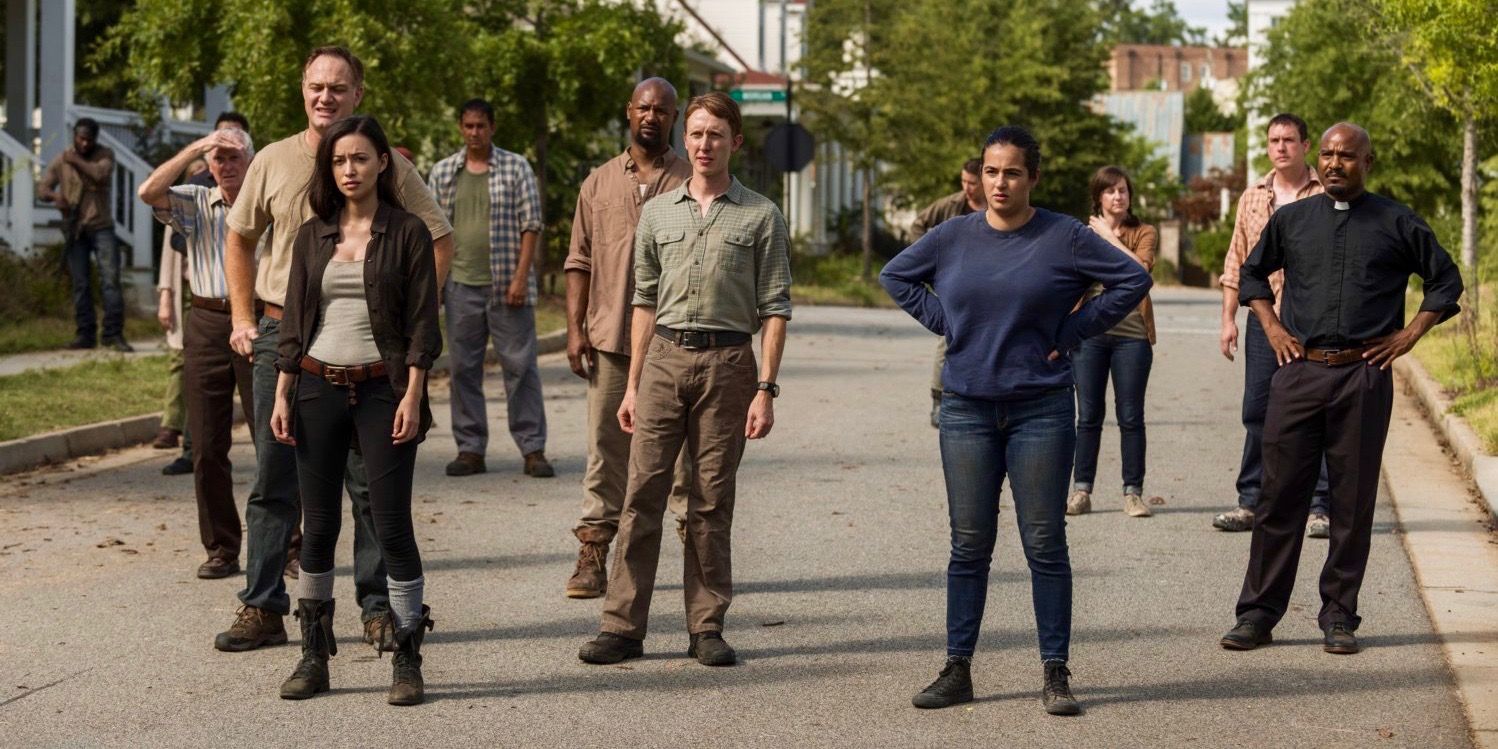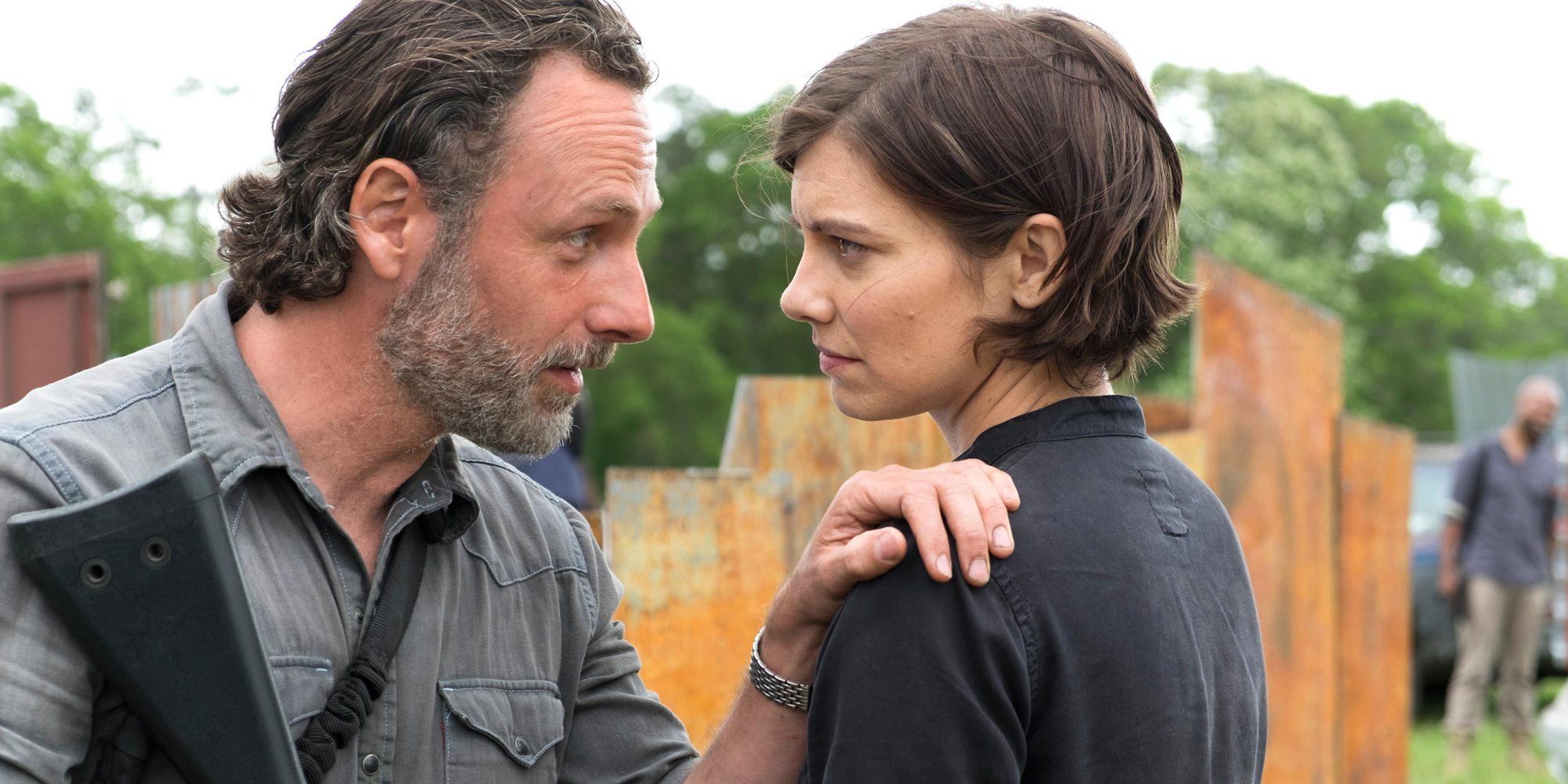Ever since its debut on AMC in October of 2010, The Walking Dead has been one of television’s most popular and talked-about shows. As AMC’s original prestige drama shows, Mad Men and Breaking Bad, have fallen by the wayside, Walking Dead- along with its spinoff, Fear the Walking Dead- has become AMC’s signature show.
Adapted from the graphic novel series of the same name by Robert Kirkman, the series has outlasted the zombie boom of past years. Sure, critics haven’t always been so kind to the series, and fans have reacted angrily to certain plots, especially more than one occasion of an unsatisfying inter-season cliffhanger.
Another constant throughout The Walking Dead’s run has been behind-the-scenes shakeups and other turmoil. Frank Darabont, the director of The Shawshank Redemption and The Green Mile, developed the series, directed the pilot, and was showrunner for the first season. He departed after that, in 2011, and was replaced by Glen Mazzara, who ran the show for the second and third seasons before he was himself replaced by Scott M. Gimple, who remains showrunner to this day.
At least ten people have been credited as executive producers over the course of The Walking Dead’s run, and the writing staff has experienced lots of turnover as well. It hasn’t quite affected the show’s popularity, but The Walking Dead has often found itself in the news for controversial, behind-the-scenes reasons - this week, especially. There was already one lawsuit in the news, stemming from Darabont’s contentious departure, which led to the controversial release of expletive-filled emails from the ex-showrunner a few months ago.
Now, there’s been another, similar lawsuit, from another group of The Walking Dead’s producers, including some who are still associated with the show. And this one could end up costing AMC a great deal of money.
The suit, according to the Hollywood Reporter, could go down as the “biggest ever profits case in television history.” Robert Kirkman, who authored the source material and co-created the series, has joined several other longtime producers- Gale Anne Hurd, Glen Mazzara and David Alpert- in alleging that AMC has cheated them out of a huge amount of money earned from their work on the series.
According to the complaint on the website of the law firm that filed it, AMC is being sued by the four producers for breach of contract, inducing breach of contract, as well as violations of various California codes.
The complaint states:
This case arises from a major entertainment conglomerate's failure to honor its contractual obligations to the creative people - the "talent," in industry jargon - behind the wildly successful, and hugely profitable, long-running television series "The Walking Dead" ("TWD")… The defendant AMC Entities exploited their vertically-integrated corporate structure to combine both the production and the exhibition of TWD, which allowed AMC to keep the lion's share of the series' enormous profits for itself and not share it with the Plaintiffs, as required by their contracts. Plaintiffs and the other talent behind TWD are the ones whose work to create, develop, write and produce the series has brought its huge success, but the fruits of that success have not been shared as they should be.
What does this mean? Essentially, in the case of The Walking Dead, AMC-owned entities act as both as the production company and TV network, meaning that one division of the same company pays another- what’s known in the industry as “vertical integration.” The Walking Dead producers allege that the fee paid by AMC Networks to AMC Studios is much less than it should be, were the series produced by a non-AMC entity, and therefore the producers are missing on profits to which they are otherwise entitled. Other shows that air on AMC but aren’t produced by AMC, such as Better Call Saul, generate much higher fees.
Each of the four plaintiffs are contractually entitled to a certain percentage of the show’s profits. And because the series has run for seven seasons, should the producers win the suit they would likely collect a substantial amount of money. The plaintiffs have not stated how much they’re suing for, but according to the Hollywood Reporter, total damages could approach the $1 billion mark, if the suit is successful, making it the largest suit of its kind in history.
AMC, meanwhile, has responded to the suit, calling it “baseless and predictably opportunistic”:
"These kinds of lawsuits are fairly common in entertainment and they all have one thing in common – they follow success… Virtually every studio that has had a successful show has been the target of litigation like this, and The Walking Dead has been the #1 show on television for five years in a row, so this is no surprise. We have enormous respect and appreciation for these plaintiffs, and we will continue to work with them as partners, even as we vigorously defend against this baseless and predictably opportunistic lawsuit.”
Darabont’s suit, filed in early 2016, made similar allegations, with the difference being that Darabont had left the show years earlier. On top of financial considerations, the new suit has the potential to lead to awkwardness, especially since several of the plaintiffs, including Kirkman, Hurd and Alpert, still work on the show and presumably must still communicate on a regular basis with the very people they’re suing. Kirkman recently signed a deal to develop new shows with Amazon, but will continue to work on The Walking Dead.
Will the suit affect the show’s production? Probably not; previous series, such as the original run of The X-Files during a similar suit between David Duchovny and Fox in the late ‘90s, continued in production despite the bad feelings, although Duchovny eventually left the show. And the lawsuit is likely to take years to wind through the courts, with appeals possible as well.
In the case of The Walking Dead, there’s clearly too much money at stake for either side to stop making the show, and while it's conceivable that the hostilities could reach the point that some of those involved would leave the series, there's no hint so far that anything like that is in the works.
However, if AMC has to pay The Walking Dead producers a billion dollars? That will certainly affect the network in a negative way, affecting everything from its development slate to its potential future relationships with showrunners.
The Walking Dead is currently in production on its eighth season, which is scheduled to premiere in October, with the series' 100th episode. And while it may not feature zombie attacks, crossbows or barbed-wire-wrapped baseball bats, an even more contentious battle may soon be coming to a California courtroom.
Source: Hollywood Reporter





